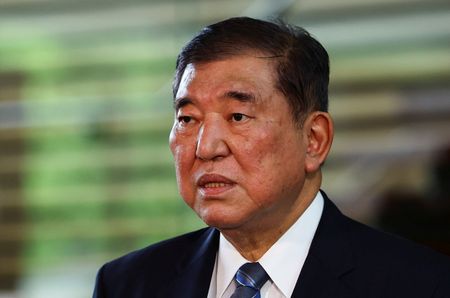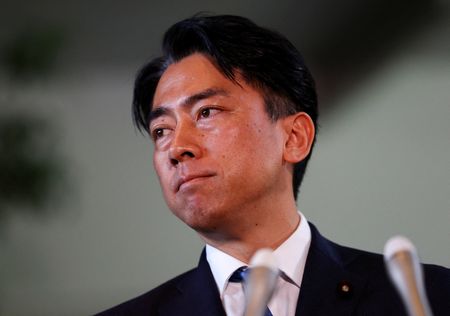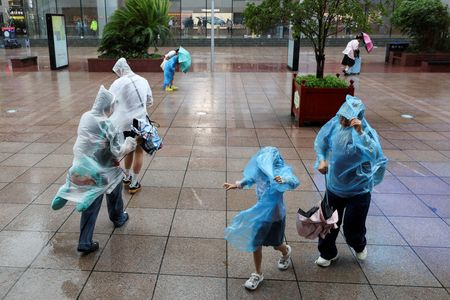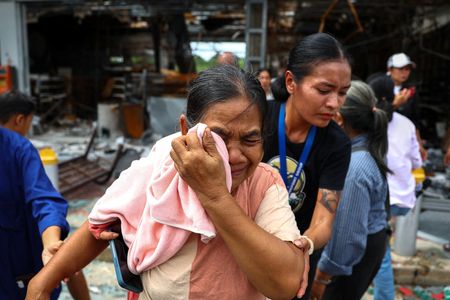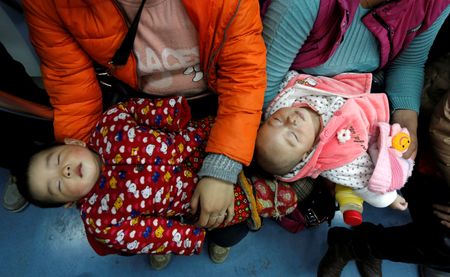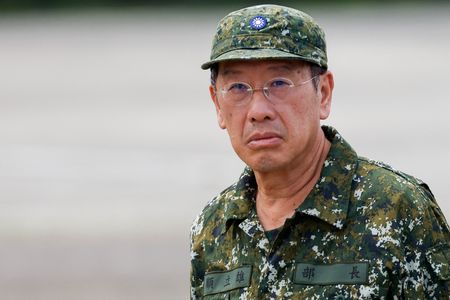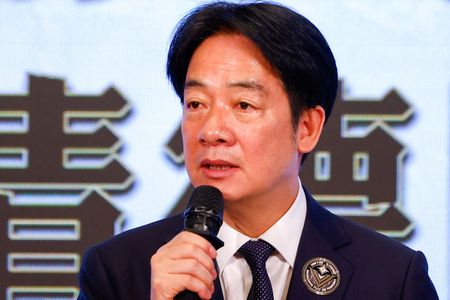By Kaori Kaneko
TOKYO (Reuters) -Japan aims to cut stockpiled rice prices to 2,000 yen ($14) per 5 kilograms (11 lb) and get rice onto shop shelves more quickly, the farm ministry said on Monday, as the high cost of the staple risks adding to the government’s unpopularity.
Crop damage from extreme heat and increasing demand from tourism have contributed to a surge in rice prices – a concern for Prime Minister Shigeru Ishiba’s government whose public approval rating has been stuck around a record low ahead of an upper house election in July.
The government will sell 300,000 metric tons of stockpiled rice – equivalent to roughly half a month’s worth of Japan’s rice consumption – via discretionary contracts to retailers, the farm ministry said.
New agriculture Minister Shinjiro Koizumi said after he was appointed last week he would quickly move rice to stores.
“The price of rice has about doubled compared to last year. We felt continuing the same way as before would not meet the people’s expectations,” Koizumi told his new team of farm ministry officials.
“We will dispel public concerns about rice prices with even greater speed and a greater sense of urgency,” he said.
The government first released stockpiled rice in March through two auctions for 210,000 metric tons, but only about 7% had reached retailers as of late April because the distribution system was multi-layered and time-consuming. Store prices were also relatively high as the rice went to the highest bidder.
Data on Monday showed supermarket rice prices rose for the second straight week, to 4,285 yen per 5 kg in the week through May 18, up 17 yen from the previous week.
To help lower prices, the government will also cover transportation costs so that stockpiled rice will be on retail shelves in early June at around 2,000 yen. It will also consider selling stockpiled rice beyond retailers.
On Friday, Koizumi met with Rakuten Group CEO Hiroshi Mikitani, who said the online retail giant was prepared to support the government’s efforts.
($1 = 142.3200 yen)
(Reporting by Kaori Kaneko; Additional reporting by Chang-Ran Kim; Editing by Michael Perry and Barbara Lewis)

